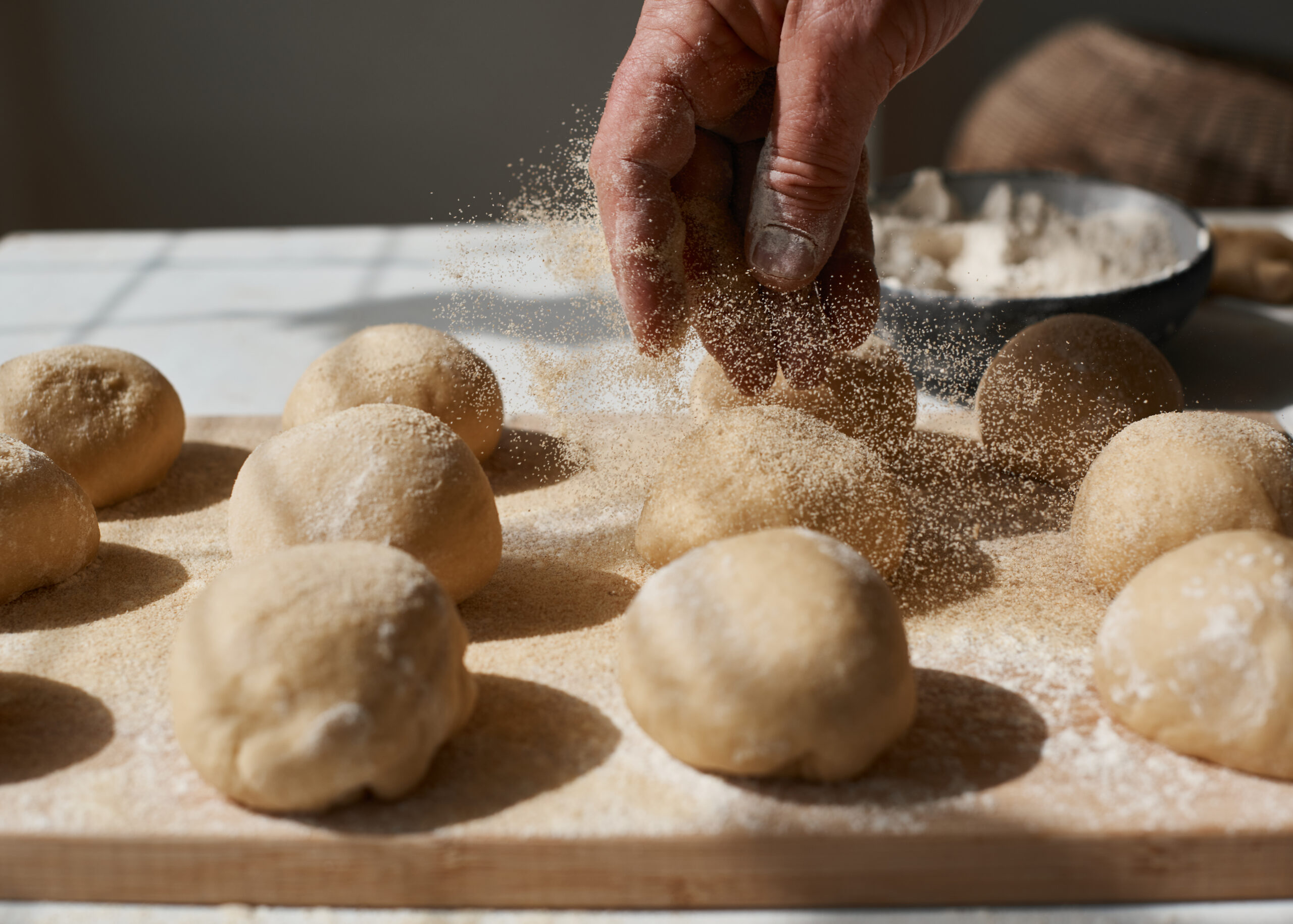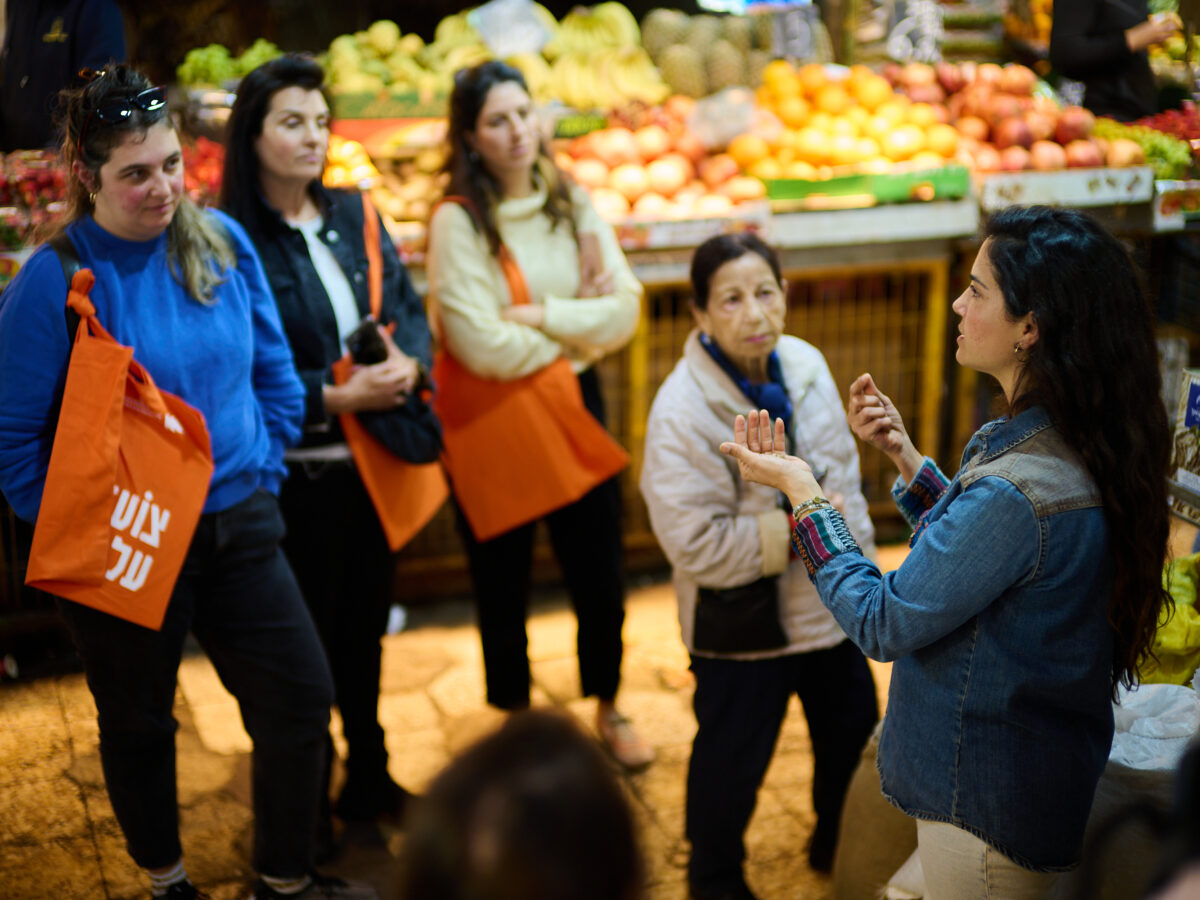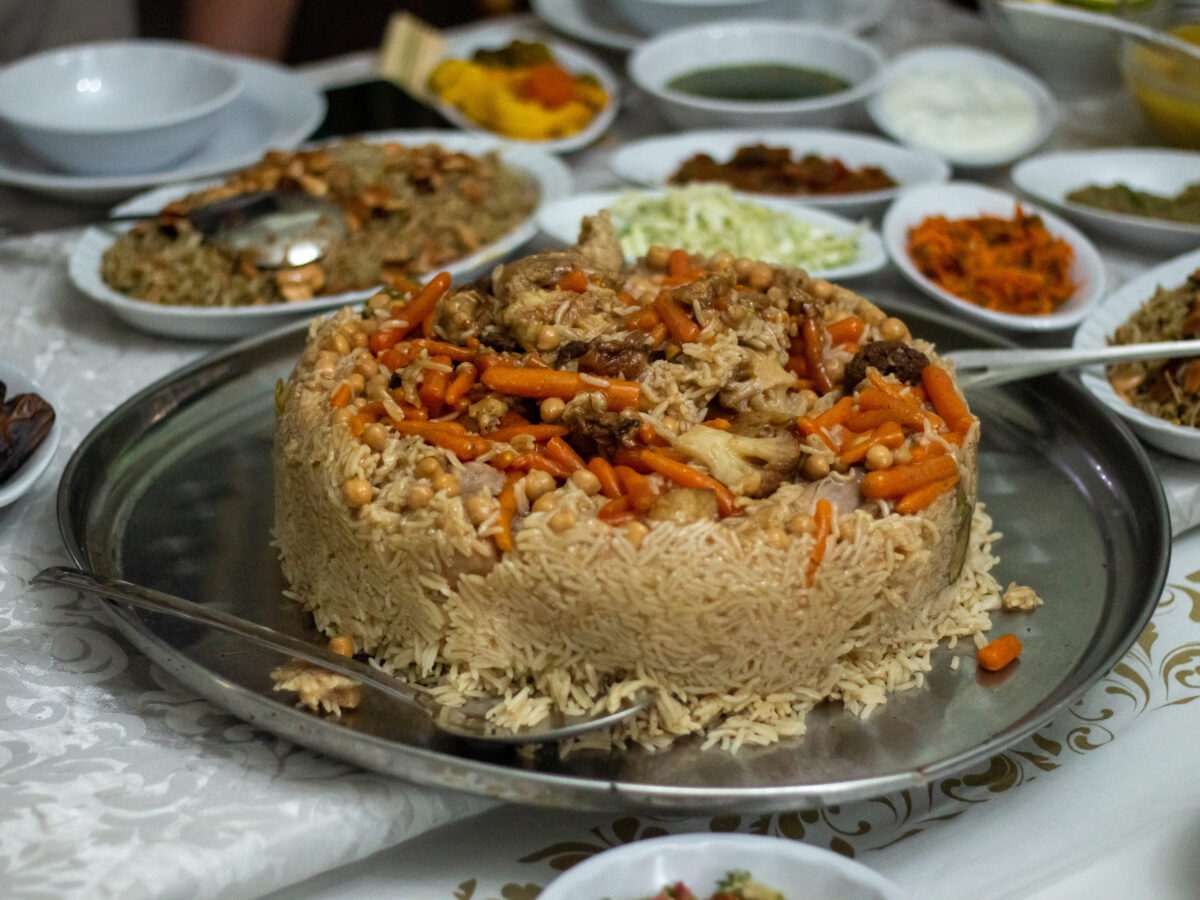On Friday, June 24, several acclaimed bakers gathered at Asif to discuss how baking can sit at the intersection of tradition and modernity, and local and global influences. The panel included Eric Kayser, a fourth generation French baker who owns and operates the global chain Maison Kayser, Erez Komarovsky, a leaders of the bread revolution in Israel, and pastry chef Adi Kihan, who owns Milk Bakery in Jaffa where she works local ingredients into traditional European pastries. Asif’s culinary director Ayelet Latovitch moderated the conversation.
Komarovsky, who led the bread revolution in Israel, shared how in his early baking days, he felt disillusioned when it came to local baking, whether it came from Palestinian traditions or those from the Jewish Diaspora. At one of his events years ago, what was supposed to be a proofed loaf collapsed and he joked that he was making “pita from Qalansuwa.”
Today he understands that this is an insult as pitas have a glorious tradition behind them — and the way of preparing them is wholly different from any bread made in Europe. Challah, rugelach, and couscous are no less than brioche, croissants, or risotto, he adds. “Unlike Israeli cooking, which we are very proud of and confident in, in local baking we still have a long way to go, because it is still difficult for us to believe in ourselves and our traditions.”
The balance of local and global isn’t limited to baking traditions and techniques for Kihan, for her, it’s also something she considers when she’s choosing raw ingredients. She uses German flour but has found Israeli butter ideal for croissants. She’s also introduced to ingredients by her customers. An Arab-Muslim customer of hers brought her dips, grape molasses, from Hebron and suggested she combine it with tahini. “Naturally, we took a croissant and dipped it. That was a meeting point for the local and French.
Kayser, whose bakery operates more than 250 branches in 35 countries, explained that in each country where he opens, his team invests time and resources into studying local bread traditions and incorporates them into their menu.
Watch the full conversation in the following video:



